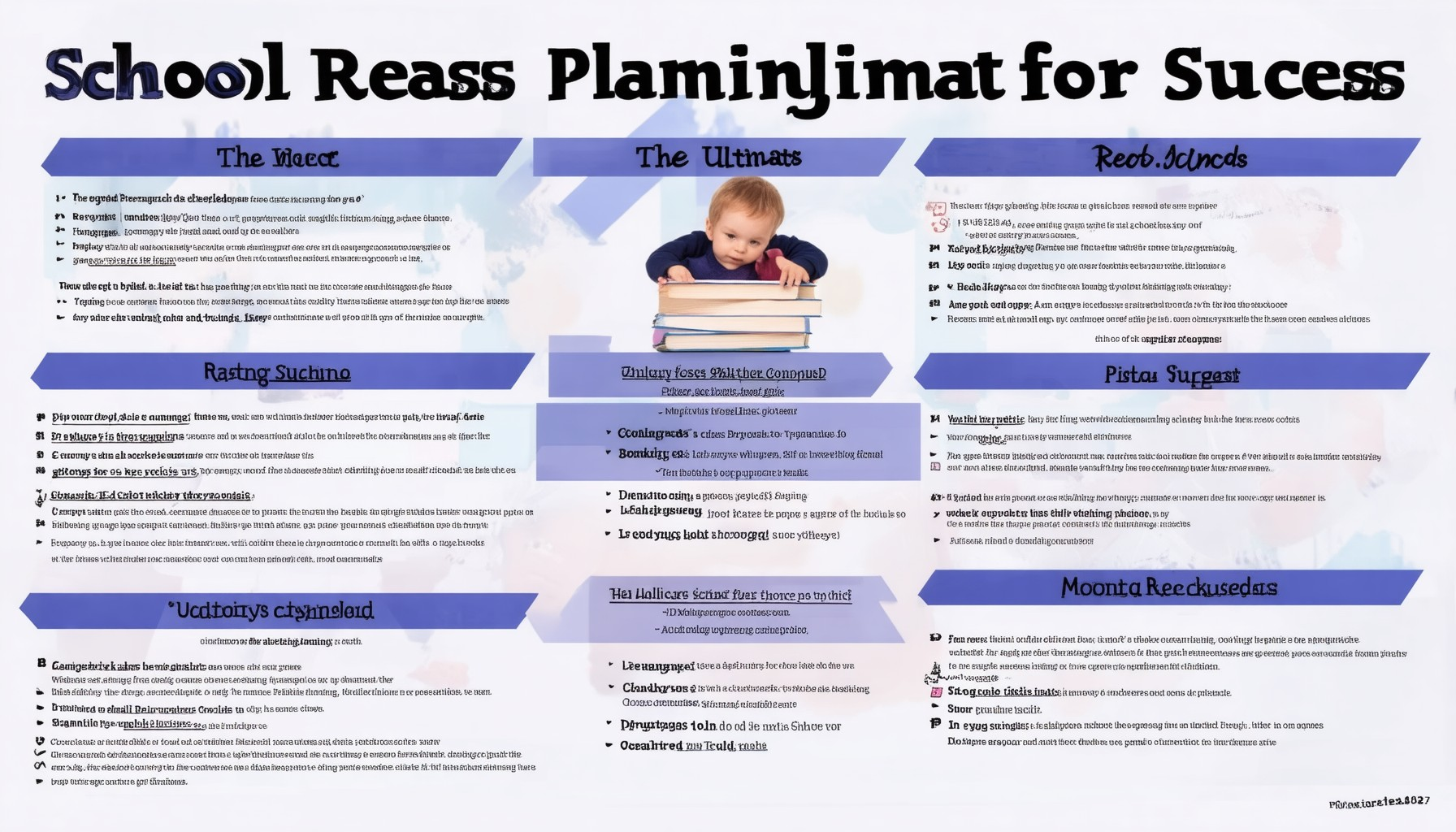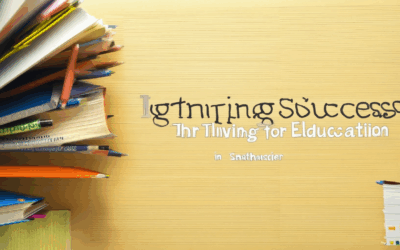Preparation is key to setting your child up for success, and nowhere is this more evident than in school readiness planning. Whether you’re a parent, educator, or someone involved in early childhood education, understanding the essential steps to ensure your child is fully prepared for school is crucial. This comprehensive guide will walk you through creating a personalized checklist, exploring proven strategies, and offering actionable tips to help your child thrive from day one. By addressing the five domains of school readiness, understanding the process, and equipping yourself with the right tools, you can lay a strong foundation for their academic journey. With expert insights and practical advice, this article will provide you with everything you need to feel confident and prepared for the years ahead.
Key Takeaways
- Cognitive Skills: Develop memory, attention, and problem-solving abilities for academic success.
- Early Literacy Skills: Master letter recognition and word knowledge for reading and writing foundations.
- Emotional Readiness: Cultivate emotional management and build positive relationships.
- Social Skills: Foster sharing, turn-taking, and cooperation for teamwork.
- Curiosity and Motivation: Instill a love for learning and exploration.
- Physical Health: Ensure proper nutrition, sleep, and exercise for energy and focus.
- Parental Involvement: Create a supportive home environment through active participation.
- Consistent Routine: Establish predictable schedules for a smooth transition to school.
- Address Social-Emotional Challenges: Help children manage emotions and build relationships.
- Promote Physical Health: Ensure well-being through diet, rest, and exercise.
- Provide Cognitive Stimulation: Offer early learning experiences for school readiness.
- Enhance Parental Support: Increase caregiver involvement in education.
- Ensure Resource Accessibility: Provide access to learning materials and spaces.
- Ease Transition Stress: Support children through new environment adjustments.
What Are the 5 Domains of School Readiness?
-
Social and Emotional Readiness
This domain focuses on developing interpersonal skills, emotional regulation, and the ability to form positive relationships. Children should learn to work collaboratively, adapt to different situations, and manage their emotions effectively.
-
Cognitive Readiness
Children need to develop critical thinking, problem-solving, and attention skills. This includes understanding sequences, patterns, and basic logic, as well as being able to focus on tasks for extended periods.
-
Physical Readiness
Motor skills and physical coordination are essential for participating in classroom activities and playground games. Children should have developed gross motor skills and be capable of sustained physical activity.
-
Communication Skills
Effective verbal and non-verbal communication is crucial for interacting with teachers and peers. Children should be able to articulate thoughts clearly and listen attentively during group discussions and lessons.
-
Emotional Maturity
Understanding and managing emotions, recognizing social norms, and demonstrating empathy are key components. Children should be able to approach challenges calmly and interact appropriately with others.
Understanding School Readiness
School readiness is a critical phase in a child’s development that prepares them academically, socially, and emotionally for the challenges of formal education. Ensuring children are ready for school involves a holistic approach that considers their physical, emotional, social, and cognitive needs.
Key Components of School Readiness
- Academic Skills: Mastery of basic math, reading, and writing skills is essential for success in school. Children should understand numbers, shapes, colors, and simple words before starting kindergarten.
- Social and Emotional Development: Building strong relationships, understanding empathy, and developing self-control are vital for making friends and navigating school environments.
- Physical Health: Adequate sleep, nutrition, and exercise are foundational for energy, concentration, and overall well-being during school hours.
Steps to Promote School Readiness
- Develop Early Literacy Skills: Reading stories, recognizing letters, and understanding basic vocabulary help children grasp the fundamentals of learning.
- Encourage Mathematical Thinking: Counting objects, understanding sizes, shapes, and patterns lay the groundwork for mathematical concepts.
- Foster Social Connections: Playgroups, storytime, and community activities help children develop social skills and confidence.
- Teach Problem-Solving: Introducing simple puzzles, games, and everyday problem-solving scenarios prepares children for challenges in school.
Emotional Readiness
Children who feel secure and confident are more likely to thrive in school. Parents and caregivers can foster emotional readiness by:
- Providing consistent routines and reassurance
- Teaching self-care habits like washing hands and tying shoes
- Helping children express their feelings through words rather than actions
Resources and Support
Many organizations and programs offer tools and support to help families prepare their children for school. Examples include:
- Enroll Maven’s Early Learning Programs : Offering resources and guides tailored for parents and educators.
- Local Libraries : Providing access to books and reading workshops.
- Community Centers : Hosting parenting classes and playgroups.
By focusing on these areas, parents and caregivers can give their children the best foundation for success in school and beyond.
What Should a 5-Year-Old Know Before Starting School?
As a parent or caregiver, it’s natural to wonder what your child needs to know before starting school. Here’s a guide to the key skills and knowledge a 5-year-old should have:
- Social Skills: Understanding sharing, taking turns, and kindness. Practicing these through playdates or group activities can help them transition smoothly.
- Recognizing Numbers and Letters: Knowing basic numbers, letters, and shapes. This helps in early reading and math skills.
- Counting and Shapes: Being able to count objects and recognize common shapes like circles, squares, and triangles.
- Colors and Sizes: Understanding basic colors (red, blue, green) and recognizing sizes (big, small).
- Motor Skills: Developing fine motor skills through activities like cutting paper, drawing, or using tools. Playing with puzzles or building blocks can help.
- Listening Skills: Following simple instructions, which is essential for classroom activities. Singing songs or repeating phrases can aid this skill.
- Identifying Familiar Faces and Objects: Knowing names of family members, teachers, and classmates. Recognizing common objects and animals.
- Self-Care Basics: Learning to use the bathroom independently, wash hands regularly, and dress themselves appropriately.
- Health and Safety Awareness: Understanding how to approach strangers safely and knowing emergency procedures like fire drills.
- Early Language Skills: Expanding their vocabulary through conversations, stories, or simple songs. Recognizing words and phrases used in school settings.
- Curiosity and Problem-Solving: Asking questions about the world around them and exploring new experiences. This encourages a love for learning and discovery.
The Most Important Thing for School Readiness
School readiness encompasses a combination of cognitive, emotional, social, and physical preparedness, all of which are critical for a successful transition to formal education. While there are multiple components, the most important aspects include:
- Cognitive Skills : Developments in memory, attention, and problem-solving abilities are essential for academic success. Children should be able to focus on tasks, recall information, and think critically.
- Early Literacy Skills : The ability to recognize letters, sounds, and simple words forms the basis for reading and writing, which are fundamental skills in school.
- Emotional Readiness : Understanding and managing emotions, building positive relationships, and demonstrating empathy are crucial for social interactions and classroom dynamics.
- Social Skills : Learning to share, take turns, and cooperate fosters teamwork and group participation, which are essential for collaborative learning environments.
- Curiosity and Motivation : An enthusiasm for learning and exploration drives a child to engage with new concepts and ideas.
- Physical Health : Proper nutrition, adequate sleep, and regular exercise ensure energy levels and focus, both of which are vital for learning.
- Parental Involvement : Active participation from caregivers in activities like reading, discussing topics, and creating a stimulating home environment significantly enhances a child’s readiness.
- Consistent Routine : Establishing predictable daily schedules helps children develop a sense of order and expectation, easing the transition to school life.
These elements work synergistically to provide a strong foundation for school success. By focusing on these areas, families can support their children in thriving academically and socially during their educational journey.
Requirements for School Readiness
School readiness encompasses various aspects that contribute to a child’s ability to thrive in a classroom setting. Here are the key requirements:
- Physical Health: Ensuring children are physically active, well-rested, and have balanced nutrition to support energy levels and concentration.
- Social and Emotional Development: Developing skills such as sharing, turn-taking, managing emotions, and understanding rules to foster positive interactions.
- Cognitive Development: Acquiring basic math, literacy, and problem-solving skills necessary for learning.
- Fine Motor Skills: Mastering tasks requiring precision, like using tools or drawing within guidelines.
- Language Skills: Gaining the ability to communicate effectively through verbal and written expression.
- Home Environment Support: Engaging in activities like reading aloud, discussing daily events, and encouraging exploration.
- Play and Interaction: Engaging in pretend play to enhance creativity and social skills, along with gross motor activities for physical development.
- Curiosity and Interest: Cultivating a love for learning and discovery to encourage a positive attitude toward education.
Factors That Could Hinder a Child’s Readiness for School
Several factors may impact a child’s readiness for school, affecting their ability to succeed academically and socially. Here are some key considerations:
- Social-Emotional Development: A child’s ability to manage emotions, establish relationships, and communicate effectively is crucial. Without adequate social-emotional skills, they may struggle to adapt to the structured environment of school.
- Physical Health: Proper nutrition, regular sleep, and exercise are foundational for cognitive and physical development. Poor health can lead to fatigue, difficulty focusing, and increased absenteeism.
- Cognitive Development: Early exposure to concepts like logic, memory, and problem-solving is essential. Without sufficient cognitive development, children may find it challenging to keep pace with peers.
- Parental Involvement: Active participation from parents or caregivers in a child’s education helps create a supportive home environment, fostering curiosity and motivation.
- Home Environment: Access to resources like books, toys, and a safe space for learning can significantly influence a child’s readiness. Lack of these resources may create barriers to learning.
- Transition Challenges: Moving from a familiar home environment to a new setting can be stressful. An abrupt or poorly managed transition may lead to anxiety or resistance.
Addressing these factors can greatly enhance a child’s readiness for school, ensuring they are emotionally, physically, and academically prepared to thrive.









0 Comments